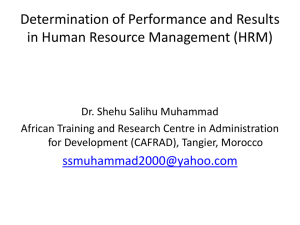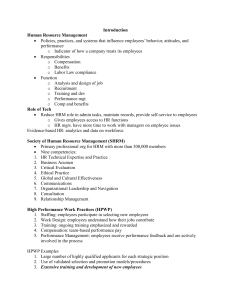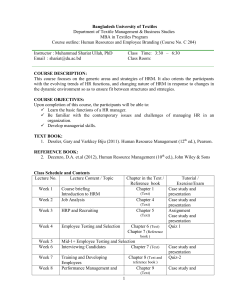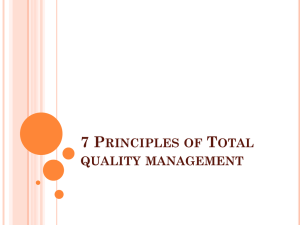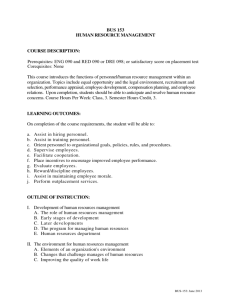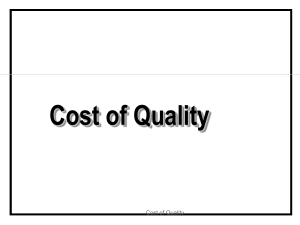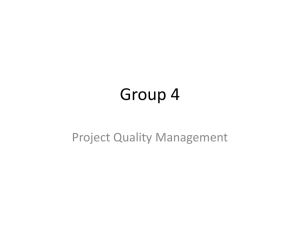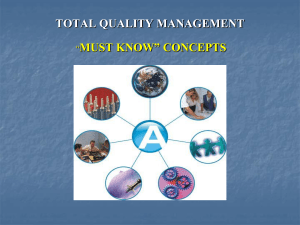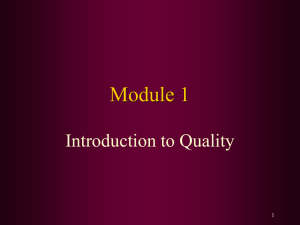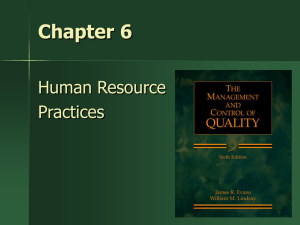Total Quality Management & HRM TQM
advertisement
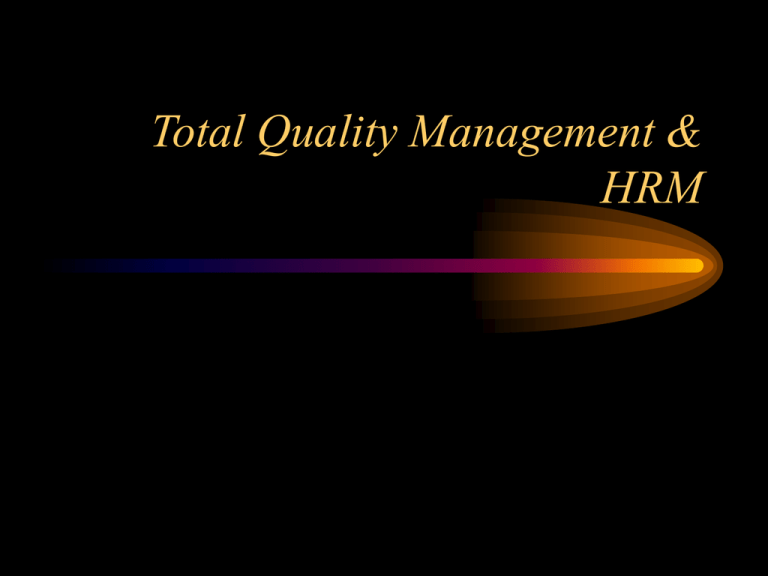
Total Quality Management & HRM TQM • Focus on Quality • Quality Problems are System Problems – defective materials – poor product design – management errors • Employees blamed for Quality that is beyond their control Control Chart • Tool to diagnose problems • Tells us when data not normally distributed • Gives us a way to think about reducing variation Focus on Customer Satisfaction • Organizational culture fits customer satisfaction • System oriented towards satisfaction • Continuous improvement Culture Difficult to Instill • Cumulative perception of organization • Based on consistent management action • Perceptions by employees, vendors, customers Deming’s Culture of Customer Satisfaction • • • • • • • Constancy of purpose for improvement Cease dependence on mass inspection Don’t award contracts on price tag Institute training Leadership not Supervision Drive out Fear Eliminate Quotas Elements of Culture • Quality Information for Improvement, Not Judgement • Authority = Responsibility • Rewards for Results • Equitable Compensation • Employees have Ownership • Cooperation not Competition • Job Security Implications for HRM Training: –train, train, train Selection –downplays selection –emphasizes culture in selection Performance Appraisal • Above individual level • Should be seen as problem solving Labor Unions • Encourage Union Involvement Summary • TQM believes in system not individuals • System involves HRM • Affects Compensation, Training, Selection, Performance Appraisal, & Labor
